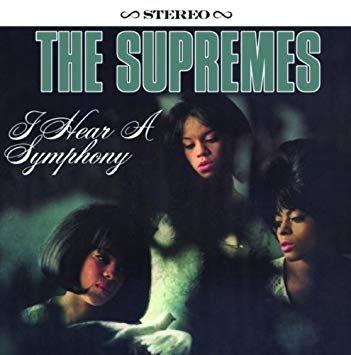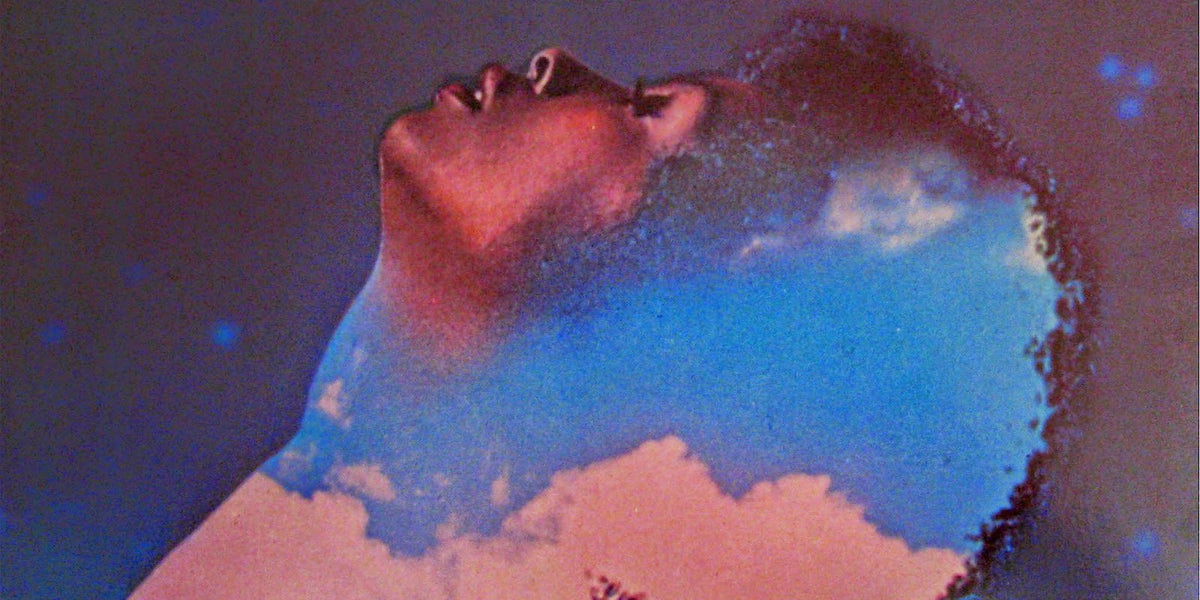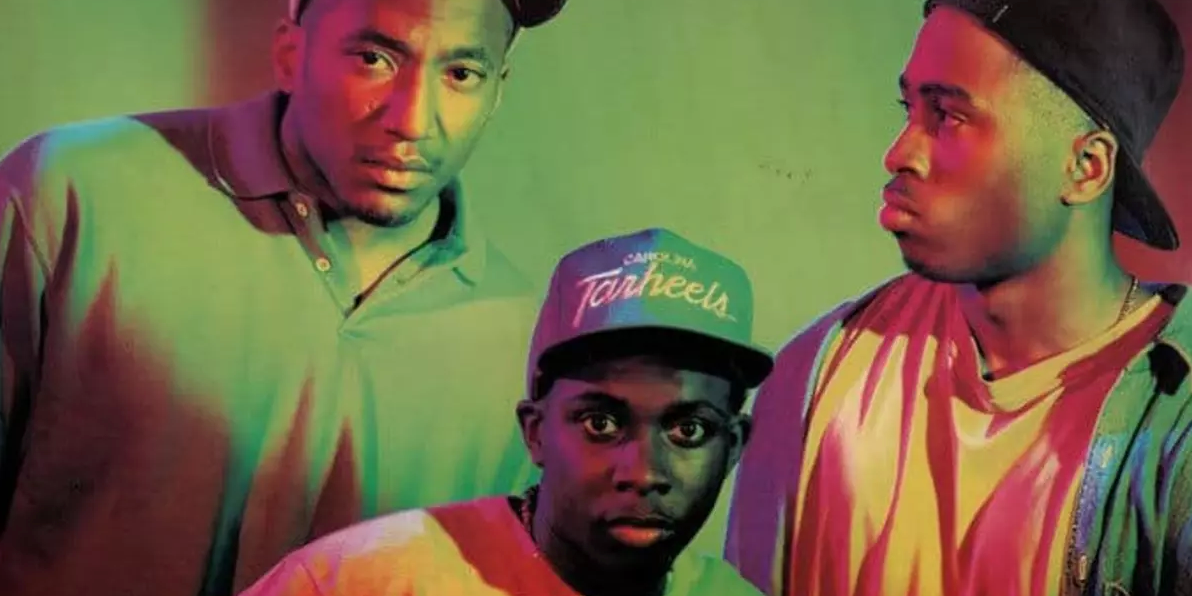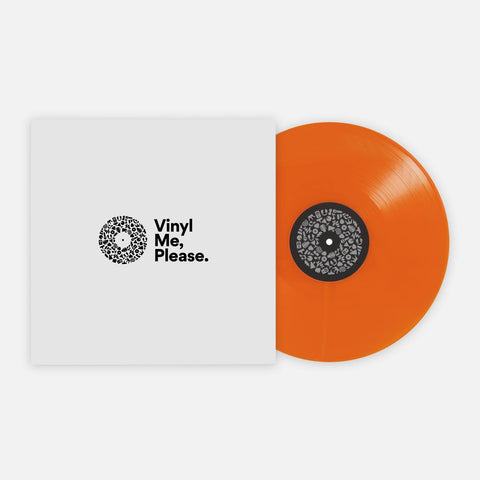Before we get into the most sensual list that's ever been run on Vinyl Me, Please, some background on quiet storm. The quiet storm genre takes its name from a late-night D.C. radio show in the late '70s, which in turn took its name from a Smokey Robinson album (more on that later) whose title track became a kind of theme song for host Melvin Lindsey. This format became incredibly popular with urban adult audiences and similar quiet storm shows popped up at radio stations across the country. It’s a catch-all term for R&B ballads and pop, a kind of soft soul version of soft rock.
In the '90s quiet storm evolved to include neo-soul, another catch-all label for a style of music that didn’t seem to fit in the R&B/pop of the time. More than just smooth R&B and slow jams, it’s music that unwinds a long day, music that makes us feel human again, when we want to focus on ourselves or have some adult time with our significant other, acknowledging that our needs and desires are important and universal. We love. We feel. We are real. In those intimate moments of alone time or together time, any one of the following albums can help set the mood. If you are looking to unwind or looking to get busy, pour yourself a glass of your favorite beverage and turn down the lights. You’re about to enter the Quiet Storm.

Sade: Diamond Life
The debut album from Sade, Diamond Life (1984), is a wonderland of smooth jazz-infused R&B. Originally content with a career in fashion design, Sade Adu fell into a singing gig which quickly turned into a band with her name, a major label deal, and a best-selling album. Her reserved vocals hit deep for everyone ready for conversations and connections, for knowing looks and tender smiles. Whether she’s singing about a world-traveling ladies’ man in album opener “Smooth Operator,” or urging listeners to hold onto their relationships in “Hang On to Your Love,” it is a sophisticated ride that could soundtrack a fabulous night out or a heated night in. Oh, and if you think Sade can’t do heat, check out these “Your Love Is King” lyrics: “Touching the very part of me, it’s making my soul sing / I’m crying out for more, your love is king / I’m coming on, I’m coming / You’re making me dance, inside.” There’s even an amazing cover of Timmy Thomas’ “Why Can’t We Live Together,” which she completely makes her own. Diamond Life is an album made for cool breezes and hot sheets.

Smokey Robinson: A Quiet Storm
Smokey Robinson is a master songwriter (the Library of Congress is going to honor him with the Gershwin Prize for Popular Song this coming November). He’s one of those artists who was meant to be in music, but by the '70s he had seen his star dimmed by more successful label mates Marvin Gaye and Stevie Wonder, and the increased popularity of funkier tunes and political messages. Robinson set to work crafting A Quiet Storm (1975), the sound of wind blowing its way through the opening and closing of each track, linking them together in what is essentially a concept album and a more mature view of love and relationships. The title track sets the loving mood with Robinson calling his lover a quiet storm and wanting to bathe in her sweet love. He sings about the tribulations of love and infidelity (“The Agony and the Ecstasy”) and is there for his lady in all the right ways in the suggestive “Baby That’s Backatcha.” There are promises of wedded bliss, bittersweet appeals for love to stay and come back and stirred up emotions when running into a former flame. With this album, Robinson blew away doubts that he could be tops as a solo artist and put his name back into the hat of singers you want to hear when the lights are low.

D’Angelo: Voodoo
If you want grooves to soundtrack a sultry evening you can’t go wrong with D’Angelo’s Voodoo (2000). Gritty soul fused with hip-hop elements, D’Angelo channels legends like Al Green, Prince and Marvin Gaye in an R&B, funky jazz tour de force. After the success of his debut Brown Sugar, arguably the starting point for the ‘neo-soul’ genre, D’Angelo wasn’t quite sure where to go from there. He spent a long time in the studio, hanging out with other artists, collaborating with them, getting in shape, rediscovering everything he loved about music, until he was ready to record Voodoo. For an album with this much preparation, Voodoo sounds loose and more like a jam session, from the restrained horns in “Playa Playa” to the downtempo funk of “Chicken Grease.” But it’s the introspective tracks like “The Line” and “Send It On” as well as the sexier numbers like the Roberta Flack cover “Feel Like Makin’ Love” and the Prince-homage “Untitled (How Does It Feel)” that elevate this to a need-this-fire-in-your-life-right-NOW record. Oh, and if you like visuals with your audio pleasure, watch this “Untitled (How Does It Feel)” video. Is it getting hot in here?

Marvin Gaye: Midnight Love
I’ll grant you that Let’s Get It On is prime quiet storm material but Midnight Love (1982), Marvin Gaye’s last studio album, deserves the top spot, too. Living in Europe and no longer with Motown Records, Gaye decided to move away from personal albums which hadn’t been as successful and instead target more mainstream pop, recording an album that has his trademark crooning backed up by some funky synth-based numbers. Half the tracks are more uptempo than what would be heard on a quiet storm playlist but the other four are truly slow jam worthy. The first single “Sexual Healing” was huge, became his first top 10 hit in five years, and won two Grammy Awards. In this one song, he reminded the world that Marvin Gaye knows music-to-grind-to, that he could be fairly direct about sex (you know the last word in the song is “masturbate,” right?) and everyone would go crazy for it. Oh and if there was ever a song made for vinyl lovers to get lucky to, it’s “Turn On Some Music” with lyrics like “put three albums on baby / we’re gonna make it long, long, long… and when the first side’s through, I’ll still be into you / I’m getting sober, let’s get high and turn the record over.”

Erykah Badu: Baduizm
Erykah Badu’s Baduizm (1997) swept into a musical world that was more open than ever to empowered female artists. The album used a lot of live instrumentation, a major characteristic of the neo-soul movement of which Badu helped bring to the mainstream, and her singing style garnered comparisons to Billie Holiday. Its downtempo R&B sound would definitely fit on a quiet storm-filled night, from the Grammy-winning “On & On” to the jazzier tracks like “Otherside of the Game,” “Certainly” and “Drama.” The themes of complicated relationships (“Next Lifetime” and “No Love”) and being true and standing up for oneself (“Appletree” and “Certainly”), along with a musical style that combines jazz and soul with hip-hop backbeats and sampling sensibilities (“Certainly (Flipped It)”) makes Baduizm the perfect album to shake off the workday that appeals to both young and old alike. The good news is that represses are relatively inexpensive. The bad news is, like the 1997 pressing, it omits five tracks that were on the CD, making it more like a sampler. The 20th anniversary of its release is coming up next year, though; perhaps we’ll get a full-length reissue. This classic album deserves it.

Jill Scott: The Light of the Sun
The release of The Light of the Sun in 2011 came after a tumultuous few years for Jill Scott: a couple of significant break-ups, the birth of her son, leaving her longtime label and then inking a deal with Warner Bros. Records, which gave her more control of her music and career. To say expectations were high for this album is an understatement. But Scott delivered the goods and then some, with The Light of the Sun debuting at number one on the album charts. Using these life experiences as inspiration, Scott recorded an album full of soulful gems, like “So In Love” which features Anthony Hamilton, and “So Gone (What My Mind Says),” the latter of which has Scott lamenting her decision to listen to her physical desires rather than her mind’s logical ones. Other highlights include the life-affirming “Blessed,” “Making You Wait” where she tells her love interest that she’s worth waiting for, and the lustful “Until Then (I Imagine)” because women want volcanic-hot fucking, too.

Peabo Bryson & Roberta Flack: Born to Love
Romantic ballads sung by R&B heavy hitters Peabo Bryson and Roberta Flack, Born to Love (1983) can only be described as unabashedly sincere pop, and gloriously so. Having previously worked together on the live album Live & More in 1980, Bryson and Flack teamed up for this studio effort which spawned the hit single “Tonight, I Celebrate My Love,” a tender song about making love and a staple of quiet storm playlists and weddings everywhere. The album stays away from the raunch and hits straight for the heart, including songs penned by Burt Bacharach and Carole Bayer Sager (“Blame It On Me” and “Maybe” co-written with Marvin Hamlisch), Bryson (“Born to Love”) and Flack (“Can We Find Love Again” co-written with Al Johnson). There’s also a cover of a country song, “I Just Came Here to Dance.” These songs work because of the sincerity and sensitivity of Bryson’s and Flack’s delivery. Some people will call Born to Love sappy, but I say simple romantic love never sounded so smooth.

The Isley Brothers: Between the Sheets
As the title and cover art imply, 1983’s Between the Sheets by The Isley Brothers is mainly for sexy times with your best lover. The funky soul title track in particular was the Brothers’ answer to Marvin Gaye’s “Sexual Healing.” It became a hit and has been sampled by a multitude of artists, perhaps most famously in The Notorious B.I.G.’s “Big Poppa.” Many of the albums on this list will have a song or two about getting it on but The Isley Brothers fill the entire first side with them. “Choosey Lover,” the album opener and a classic quiet storm choice, isn’t as explicit but lead singer Ronald Isley thanks his lady for choosing him and not sleeping around. The grinding continues with “Touch Me,” “I Need Your Body,” the title track, and “Let’s Make Love Tonight,” all of which set an intimate mood. That mood is sort of interrupted by the anti-war song that starts side B but you can think of it and the next song as a time when you and your partner take a breather, cuddle, and maybe talk about the world before starting another round with the rest of the album and promptly flipping it back to side A.

Maxwell: Maxwell’s Urban Hang Suite
Maxwell’s newest album, BlackSUMMERS’night is silky fire and you should go listen if you haven’t already done so. But twenty years ago in 1996 it was all about his debut, Maxwell’s Urban Hang Suite, which focuses on the lifecycle of an adult romance, from its exciting beginnings and sex-filled escapades to break-ups and make-ups. He collaborated with several music veterans, including multi-instrumentalist and Sade band-member Stuart Matthewman, which helped give it that timeless cool jazz and R&B appeal. Columbia Records was afraid it wasn’t commercially viable and shelved it at first, thinking that a concept album that didn’t have mainstream R&B hits wouldn’t find an audience. Those fears were put to rest when it achieved instant classic status, critical acclaim turning to commercial success over the ensuing months on the strength of singles “…Till The Cops Come Knockin’” and “Ascension (Don’t Ever Wonder).” Plus it’s just a killer album. Maxwell inhaled the magic of Prince, Marvin Gaye and Sade and then exhaled pure unadulterated smooth R&B that tingles the body from head to toe.

Anita Baker: Rapture
Rapture (1986) was Anita Baker’s second solo-effort, her first on a major label, and if you’re looking to connect with your inner woman (wink wink yeah I went there) then this album is for you. With a voice that is both classy and earthy, Baker delivers gospel-influenced soul jazz with an attainable sophistication. “Sweet Love,” a song she co-wrote, is the heavy hitting opener, proclaiming she feels no shame in the love she feels. More rapturous declarations are made (“You Bring Me Joy” and “Caught Up In The Rapture of Love”) but it isn’t all happily-ever-afters with Baker warning a neglectful lover that she won’t wait forever (“Been So Long”). Regret, nostalgia, or warnings to an ex are common themes (“Mystery,” “No One In The World,” and “Watch Your Step”). But my personal favorite is “Same Ole Love,” where Baker sings “from beginning to end, 365 days of the year / I want the same ole love… all I wanna do is keep on loving you / I want the same ol' love.” Unlike the break-up/make-up games at the beginning of a relationship, it’s the steady every day of life together that’s even better. On Rapture, Anita Baker established herself as the every-woman, strong and passionate, making long-term romance sound inviting and sexy.
Marcella Hemmeter is a freelance writer and adjunct professor living in Maryland by way of California. When she's not busy meeting deadlines she frequently laments the lack of tamalerias near her house.
Related Articles
Join the Club!
Join Now, Starting at $36Pages











